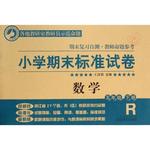题目内容
The head teacher always asks ________ students to be strict with ourselves in everything.
- A.the
- B.our
- C.us
- D.his
从后面的ourselves可知这里的students作us的同位语.

 小学期末标准试卷系列答案
小学期末标准试卷系列答案
I met Jane Black in university, and soon we became friends.The first time I went to her home I found her family quite different from my own.
In my family, it was always important to place 1 when anything bad happened.
"Who did this? "my mother would scream about a dirty kitchen.
" This is all your 2 , Katharine, " my father would insist when the cat got out or the dishwasher 3 .
From the time we were little, my sister, brothers and I told on each other.We set a place for blame at the dinner table.
4 ,the Whites didn't worry about who had done what.They picked up the pieces and 5 with their lives.The beauty of this was driven home to me the summer Jane died.
In July, the White sisters and I decided to take a car 6 from their home in Florida to New York.The two older sisters, Sarah and Jane, were college students, and the youngest, Amy, had recently 7 sixteen.Proud of having a new driver' s license, Amy was excited about practicing her driving on the trip.She 8 her license to everyone she met.
The big sisters 9 the driving of Sarah' s new car during the first part of the trip, but when they reached _10_ crowded areas, they let Amy 11 .Somewhere in South Carolina, we pulled off the highway to eat.After lunch, Amy got behind the wheel.She came to a crossroads with a stop sign.Whether she was nervous or just didn't see the sign no one would 12 know, but Amy continued into the crossroads without stopping.The driver of a large truck, unable to stop in time, ran into our car.
Jane was killed immediately.I was only 13 injured.The most difficult thing that I’ve ever done was to call the Whites to tell them about the accident and that Jane had died.Painful __14_ it was for me to lose a good friend, I knew that it was far worse for them to lose a child.
When Mr.and Mrs.White arrived at the hospital, they found their two daughters sharing a room.Sarah had a few cuts on the head and Amy' s leg was broken.They hugged us all and cried tears of 15 and of joy at seeing their daughters.They 16 away the girls' tears and made a few jokes at Amy as she learned to use her crutches (拐仗).
To both of their daughters, and especially to Amy, over and over they simply said, "We' re so glad that you' re alive."
I was 17 .No blame.No accusations.
Later, I asked the Whites why they never talked about the fact that Amy was driving and had run a stop sign.
Mrs. White said, "Jane' s gone, and we miss her 18 .Nothing we say or do will ever bring her back.But Amy has her whole life ahead of her.How can she _19____ a full and happy life if she feels we blame her for her sister' s death?"
They were right.Amy graduated from the University of California and got married several years ago.She works 20 a teacher of learning-disabled students.She' s also a mother of two little girls of her own, the oldest named Jane.
| 【小题1】 |
|
| 【小题2】 |
|
| 【小题3】 |
|
| 【小题4】 |
|
| 【小题5】 |
|
| 【小题6】 |
|
| 【小题7】 |
|
| 【小题8】 |
|
| 【小题9】 |
|
| 【小题10】 |
|
| 【小题11】 |
|
| 【小题12】 |
|
| 【小题13】 |
|
| 【小题14】 |
|
| 【小题15】 |
|
| 【小题16】 |
|
| 【小题17】 |
|
| 【小题18】 |
|
| 【小题19】 |
|
| 【小题20】 |
|